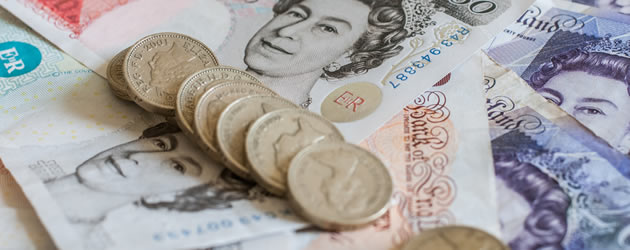The Euro to Pound Sterling (EUR/GBP) exchange rate is forecast to experience more volatility next week. If the latest batch of Eurozone data adds to signs that the 19-member currency bloc is making a solid recovery the Euro could firm but lurking in the background however, will be the ongoing Greek situation and the conflict in Ukraine.
The Euro to Pound Sterling exchange rate touch a weekly low of 0.7131 in the week of June 1 to June 5
As next week gets underway the Euro to Pound Sterling (EUR/GBP) exchange rate is likely to hold onto the gains it achieved last week.
On Monday, German Industrial production data is forecast to come in positively. Production is expected to have rallied from the -0.5% recorded in March to 0.2% in April. Also due for release in the session, will be Eurozone Sentix Investor sentiment data. That report could pare earlier gains as economists forecast that sentiment across the currency bloc eased from 19.6 to 18.5 in June as worries over Greece weighed. The Pound will be influenced by external events due to a lack of market moving economic data releases.
On Tuesday, the Pound Sterling could claw back lost ground if April’s UK balance of trade report shows that the nation’s trade deficit narrowed in April. Economists are expecting the deficit to narrow from £-2.817 billion to £-2.3 billion. The data is likely to reflect the improved economic situation in Europe.
The main event for the week however will be the second estimate for Eurozone economic growth. The currency bloc’s economy is forecast to have improved from 0.3% to 0.4% on a quarter-on-quarter basis and rise from 0.9% to 1% on a year-on-year basis.
The Euro to Pound Sterling exchange rate touch a weekly high of 0.7380
Midweek, the Pound will experience movement as a result of manufacturing and industrial production data. On an annual basis manufacturing production is forecast to have inched higher from 1.1% to 1.15% in April. Industrial production meanwhile is expected to have fallen from 0.7% to 0.57% on an annual basis and from 0.5% to 0.07% on a monthly basis in April. Also of interest will be the NIESR GDP third estimate.
On Thursday, the Euro to Pound exchange rate will be influenced by data from France. Inflation in the Eurozone’s second largest economy is expected to improve from 0.1% to 0.2% on a yearly basis and remain at 0.1% month-on-month.
On Friday, the currency pair is likely to experience volatility as a result of the release of UK Construction output data and Eurozone industrial production data.
The EUR/GBP exchange could move if the fighting in Ukraine intensifies. Investors will likely be nervous that more economic sanctions will be imposed by the west on Russia.
If a deal is reached between Athens and its creditors next week we can expect to see the Euro advance strongly against its peers.
Negotiations between the UK government and European leaders over reforms could influence the exchange rate as the debate over a UK exit from the EU looks set to intensify over the coming weeks.



